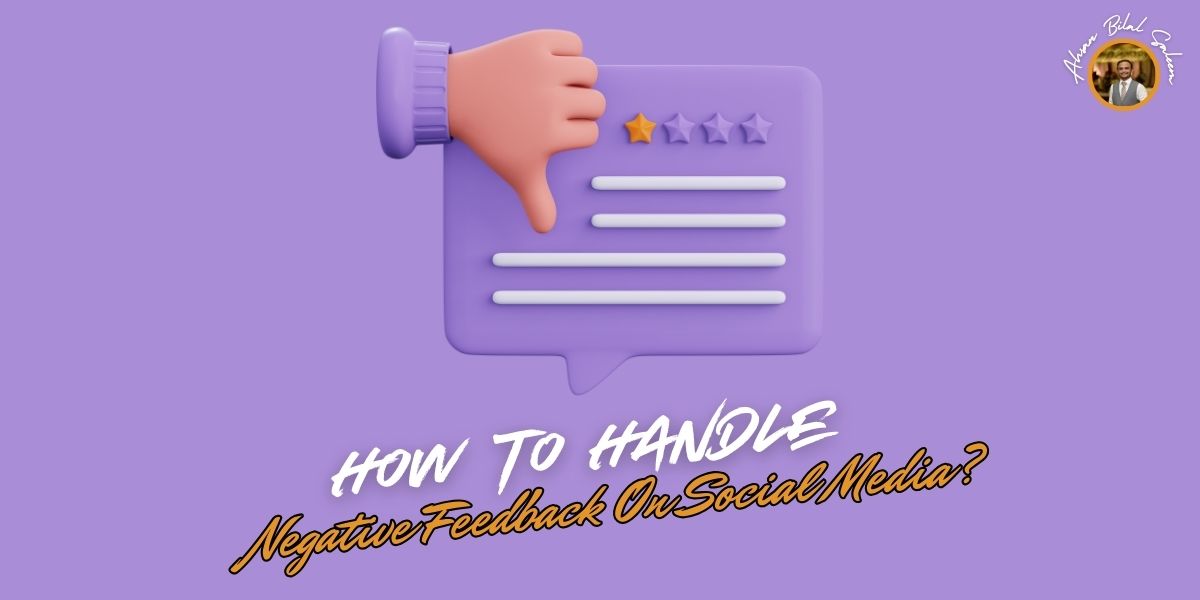How To Handle Negative Feedback On Social Media?
In the age of digital connectivity, social media has become a double-edged sword for businesses. While it offers a powerful platform for engagement and promotion, it also opens the door to public criticism. Handling negative feedback on social media is significant for keeping a positive brand picture and building entrust with your crowd. Here’s a guide on how to effectively manage and respond to negative feedback on social media.
1. Stay Calm And Professional
The first step in handling negative feedback is to remain calm. It’s normal to feel protective, however responding sincerely can raise what is happening. Take a deep breath, and approach the feedback with a professional and composed demeanor. Keep in mind, your reaction is an impression of your image.
2. Acknowledge The Issue
Acknowledging the issue shows that you are listening and taking the feedback seriously. A simple acknowledgment like, “We understand your concern and appreciate you bringing this to our attention,” can go a long way in diffusing tension and showing that you care about your customers’ experiences.
3. Respond Promptly
In the fast-paced world of social media, timing is crucial. Responding promptly to negative feedback demonstrates that you are attentive and proactive. Aim to address the issue within 24 hours, even if it’s just to let the customer know that you are looking into the matter and will follow up soon.
4. Take The Conversation Offline
While it’s important to publicly acknowledge the feedback, complex issues are often better resolved privately. Invite the customer to continue the conversation through direct messages, email, or phone. This allows for a more in-depth discussion and helps to protect the customer’s privacy.
Example response: “We apologize for the inconvenience you’ve experienced. Could you please send us a direct message with more details so we can assist you further?”
5. Be Empathetic And Apologize When Necessary
Empathy is key when dealing with negative feedback. Come at the situation from the client’s perspective and attempt to grasp their dissatisfaction. Apologize genuinely on the off chance that your organization is to blame. A genuine apology can turn a negative experience into a positive one and potentially retain the customer’s loyalty.
6. Offer A Solution
Providing a solution or next steps shows that you are committed to resolving the issue. Whether it’s a replacement product, a refund, or simply more information, offering a tangible resolution can help to rebuild trust and demonstrate your dedication to customer satisfaction.
7. Learn From The Feedback
Negative feedback can be a valuable source of insight into your business. Analyze the comments to identify patterns or recurring issues that may need to be addressed. Use this information to make improvements to your products, services, or customer experience.
8. Monitor And Manage Your Online Reputation
Regularly monitor your social media channels to stay on top of what people are saying about your brand. Utilize social listening devices to follow notices and opinion. Being proactive in managing your online reputation helps you to address issues before they escalate.
9. Encourage Positive Reviews
While handling negative feedback is important, it’s equally crucial to encourage satisfied customers to share their positive experiences. Positive reviews can help to counterbalance negative ones and provide a more balanced view of your brand.
10. Reflect On Your Brand’s Communication Style
Ensure that your brand’s communication style is consistent across all platforms. This consistency helps to build a recognizable brand identity and assures customers that they are dealing with a reliable and professional entity.
Conclusion
Handling negative feedback on social media effectively can turn a potentially damaging situation into an opportunity to demonstrate your commitment to customer satisfaction. By staying calm, responding promptly, showing empathy, and offering solutions, you can maintain a positive brand image and build stronger relationships with your audience. Remember, every piece of feedback is a chance to learn and grow, ultimately making your business stronger and more resilient.










